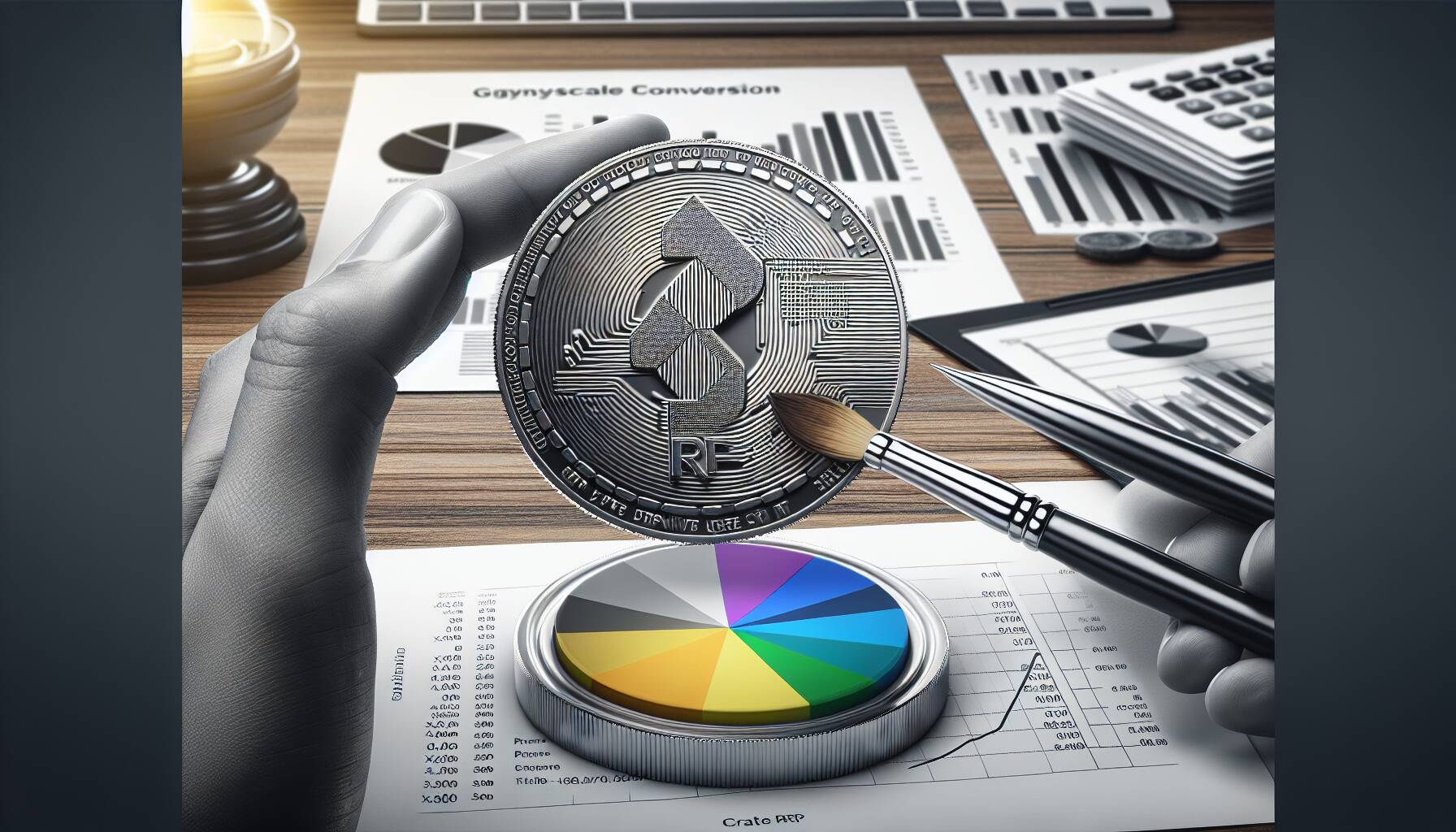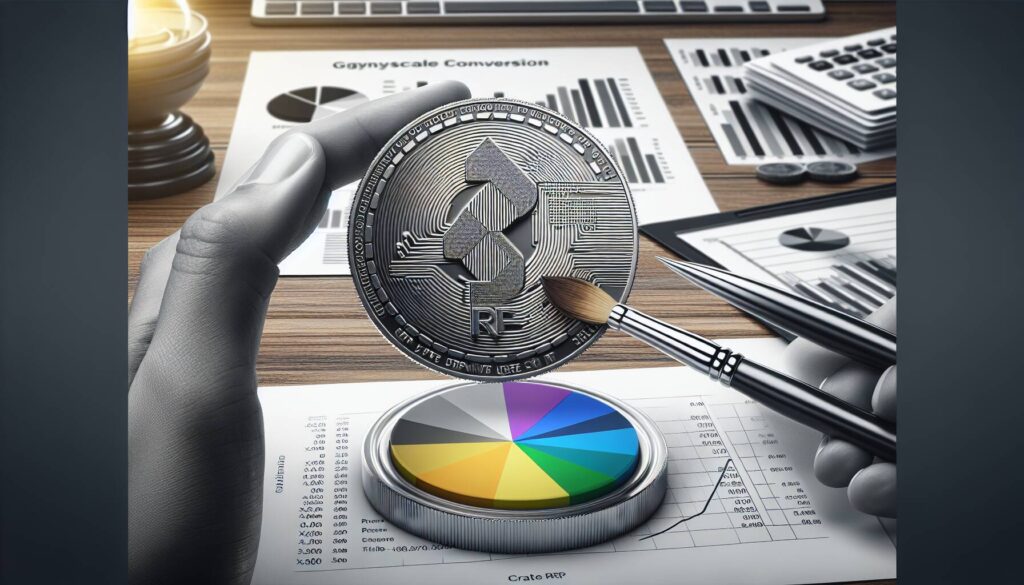In a significant move for the cryptocurrency landscape, Grayscale Investments, a prominent player in the space, has officially filed an application with the Securities and Exchange Commission (SEC) to transform its XRP Trust into an exchange-traded fund (ETF). This proposed ETF is set to be listed on the New York Stock Exchange (NYSE), indicating a major step towards mainstream acceptance and institutional investment in XRP.
The existing XRP Trust, operating as a Delaware statutory trust, currently manages over million in XRP. The new ETF aims to maintain XRP as its primary asset while directly tracking its performance, offering investors an efficient way to engage with the asset without the complexities of direct cryptocurrency ownership. This bold initiative by Grayscale joins similar efforts from other firms like CoinShares and Bitwise, showcasing a burgeoning institutional demand for structured investment vehicles centered around XRP.
“An XRP ETF could soon be a reality,” stated Monica Long, president of Ripple Labs, reflecting optimism following the election of the new Trump administration, which has expressed commitment to fostering cryptocurrency innovation within the U.S.
Further fueling this momentum, trading volumes across XRP-based platforms have witnessed a notable increase, with swap volumes on the XRP Ledger’s decentralized exchange surpassing the 0 million threshold in January. This surge marks a key milestone, as trading volume recently soared past billion for the first time since the launch of its automated market maker feature. Many industry experts are now predicting that 2024 could be a “monumental” year for XRP, driven by these developments.

Grayscale’s XRP ETF Application and Its Implications
The recent developments concerning Grayscale Investments and its XRP Trust application to convert into an ETF could have significant implications for investors and the broader cryptocurrency market. Here are the key points to consider:
- Grayscale’s Filing with the SEC:
- Grayscale Investments has applied to convert its XRP Trust into an ETF listed on the NYSE.
- As of now, the trust manages over million in XRP.
- Investors’ Direct Link to XRP Performance:
- The proposed ETF would primarily hold XRP and track its price performance, adjusted for operational fees.
- This structure offers a more accessible way for everyday investors to engage with XRP without direct ownership of the asset.
- Institutional Interest in XRP:
- Other firms like CoinShares and Bitwise have also filed for XRP-based ETFs, showing increased institutional interest.
- This growing appetite indicates a shift towards more structured investment products in the cryptocurrency sphere.
- Potential Regulatory Support:
- Comments from Ripple Labs president suggest that an XRP ETF could become a reality under current U.S. administration, supporting cryptocurrency innovation.
- This could lead to more favorable conditions for crypto-related businesses, impacting investment opportunities.
- Surge in XRP Trading Volume:
- Trading volumes on XRP-native applications have notably increased, with swap volumes exceeding billion for the first time due to the DEX feature.
- Rising trading volumes signify XRP’s growing popularity and could attract further investor interest, enhancing its market presence.
“2024 could be a monumental year for XRP,” as the combination of an ETF and increased trading activities potentially enhance its landscape and position in the market.
Grayscale’s XRP ETF Application: A Game-Changer for Crypto Investments?
The ongoing race to establish exchange-traded funds (ETFs) tied to XRP has reached a new precipice, with Grayscale Investments taking the lead. This major player in the crypto fund landscape has made headlines by filing a proposal with the SEC to convert its XRP Trust into an ETF. This move not only emphasizes Grayscale’s strategic positioning but reflects a budding interest among institutional investors in XRP-centric investment vehicles. The contrasting efforts of firms like CoinShares and Bitwise in submitting their own XRP ETF applications showcase the rising tide of institutional retail interest in digital assets.
Competitive Advantages: Grayscale’s existing structure as a Delaware statutory trust is a robust foundation, managing over million in XRP assets as of late last week. The proposed ETF aims to provide a more straightforward investment route that tracks XRP’s performance, adjusted for operational fees—all while being strategically listed on the NYSE. This visibility can potentially attract a broader array of investors looking for exposure without the complexities of direct cryptocurrency handling. Additionally, the endorsement from Ripple Labs and optimistic comments regarding regulatory support under the new administration serve to strengthen the case for Grayscale’s ETF, positioning it as a frontrunner in a market eager for innovative financial products.
Disadvantages and Challenges: While Grayscale’s ambitions are commendable, they are not without obstacles. The SEC has a history of cautiousness concerning cryptocurrency-related financial products, and approval is far from guaranteed. Competition is fierce; with multiple applications in the mix, the timeline for approvals could extend, potentially causing market fluctuations and uncertainty. Investors may be caught in a waiting game, which can lead to volatility in XRP prices as speculation swirls around which firm’s application will gain favor with regulators.
Those positioned to benefit most from Grayscale’s ETF are institutional investors seeking to diversify into digital assets via regulated channels. Retail investors may also find this ETF appealing due to its transparency and regulatory backing. Conversely, market participants who thrive on price volatility could find such a development problematic, especially if approved applications lead to rapid price inflations and deflations as the market adjusts. If the ETF does not receive approval or meets regulatory pushback, existing XRP holders could face significant drawbacks, leading to potential market corrections.















